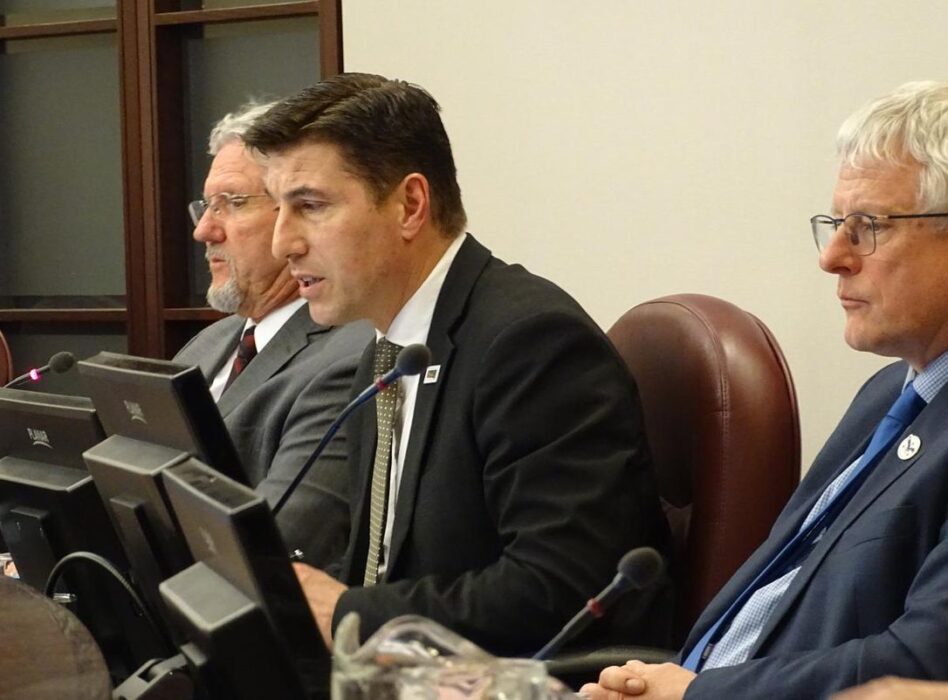
An Ontario town has rejected a motion to open all its council meetings with an acknowledgment that the proceedings are taking place on lands held by Canada’s Indigenous people.
A councillor in the town of Richmond Hill, Ont., first tabled the idea at a meeting in February, only to encounter pushback from councillors and see the motion deferred to a later date.
This week, when the motion came up for debate once again, dozens of residents of the town north of Toronto voiced support for the idea of showing respect to Indigenous people by acknowledging that they were the first occupiers of the land on which the town now stands.
But another councillor tabled an amendment to the land acknowledgment motion, essentially scrapping it and replacing it with a proposal to offer training on Indigenous issues to city staff.
That amendment passed, leaving local supporters shouting angrily at council members.
Coun. David West, who tabled the original land acknowledgment motion, said Wednesday that the vote represented a shameful moment for the town.
“I’m remarkably disappointed,” West said in a telephone interview. “Sometimes governments are not the organizations that lead. Sometimes we lead the parade from behind, and this might be one of those cases. The people are leading us.”
West said land acknowledgments are becoming increasingly common, citing politicians at the federal, provincial and municipal level who open formal proceedings with such measures.
He said the effort to acknowledge Indigenous territory is a direct offshoot of the Truth and Reconciliation Commission and the broader effort to make Canada reckon with its historical treatment of Indigenous people.
The motion he put forward on Feb. 11 addressed the reasons behind his proposal.
The statement West hoped to see read before all future council meetings included an acknowledgment that participants were gathered on the “traditional territories of the Wendat, the Haudenosaunee, and the Anishinaabe peoples, whose presence here continues to this day.”
“We acknowledge this land and people because the first step to reconciliation is recognizing the existence of Indigenous people,” the motion read. “A shared understanding of how our collective past brought us to where we are today will help us walk together into a better future.”
But deputy mayor Joe DiPaola voiced opposition to the motion, saying it put too much emphasis on one demographic.
“I think we’re treading down a course of political correctness that’s going to be difficult to rein in,” he said at the meeting. “There’s no acknowledgment of the Portuguese, the Italian community, the Chinese community, the Iranian community _ all the groups that coexist here in harmony.”
The motion was deferred to March 25, at which point DiPaola rose to table an amendment.
He proposed that West’s motion be effectively replaced with a proposal to “provide education and training on the history of aboriginal peoples, including the history and legacy of residential schools,” to town employees.
West praised DiPaola’s proposal, but objected to it standing as a substitute for a land acknowledgment.
In the end DiPaola’s amendment passed, bringing cries of “you should be ashamed” from members of the public attending the meeting.
One Indigenous community, the Anishinabek Nation of northeastern Ontario, said on Twitter that it was sending an “education package” to the town council.
“We just thought we would help out the mayor and council to learn about our history,” the group said, declining to offer further comment on the Richmond Hill vote.
The Nishnawbe Aski Nation, a collection of Indigenous communities in northwestern Ontario, previously spoke out about the importance of land acknowledgment. They did so when the Ontario Medical Association opted not to implement them during a 2018 vote.
“The widely adopted practice recognizes our territories and the inherent and Treaty rights of Indigenous Peoples,” Grand Chief Alvin Fiddler wrote to the association at the time.
The Association of Municipalities of Ontario declined to comment on the Richmond Hill vote, but its website contains a guide for any local governments wishing to adopt what it describes as a growing trend.
“Traditional land acknowledgment statements are increasingly being used in Canada by governments, schools, post-secondary institutions, non-governmental organizations, and other civil institutions as a practice of reconciliation aimed at recognizing the traditional or treaty territories of Indigenous peoples,” the guide reads.








